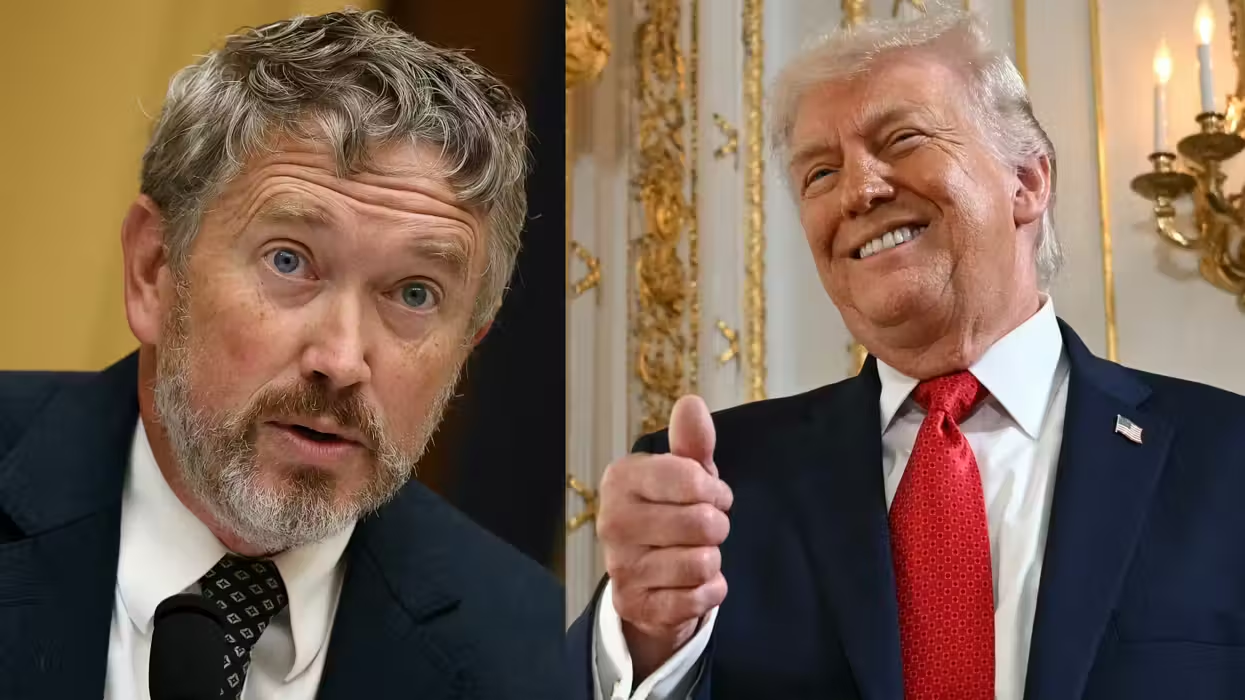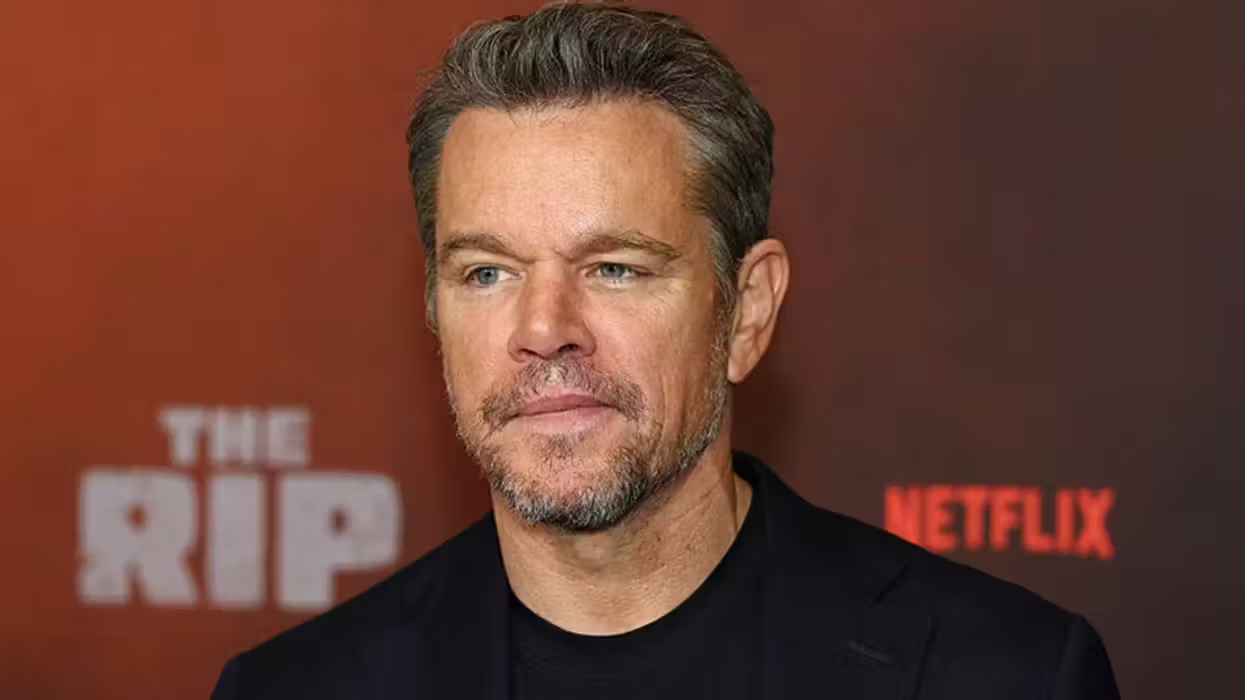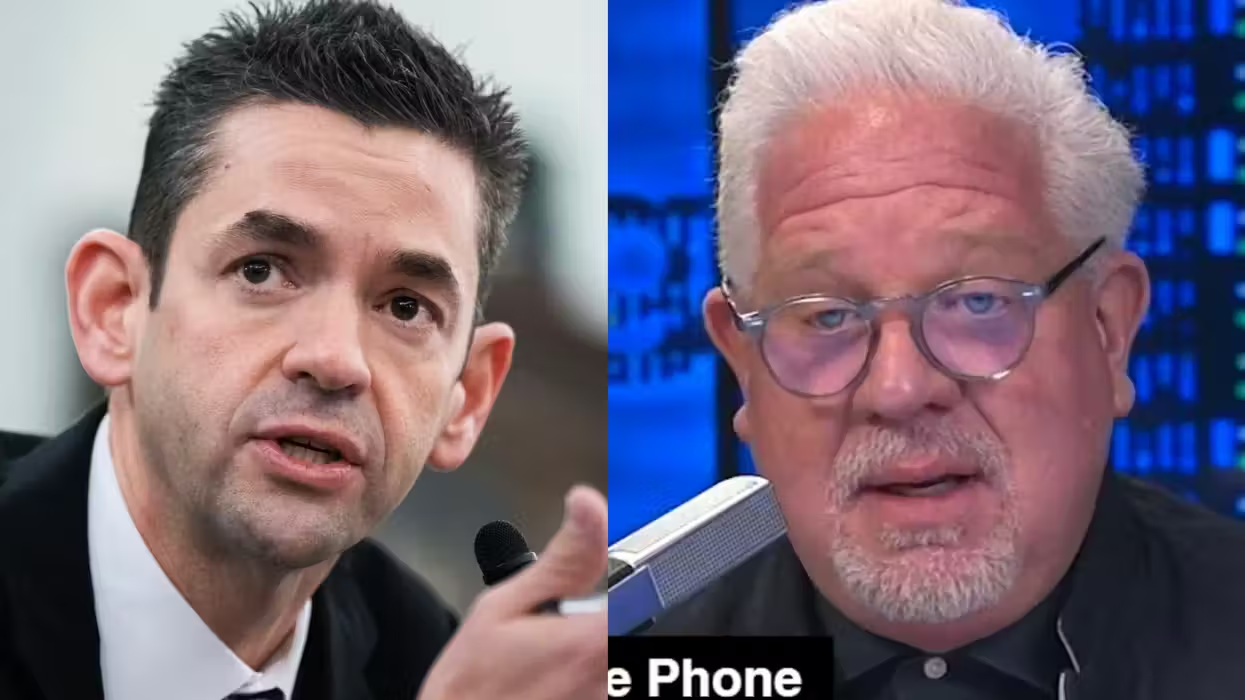OKLAHOMA CITY (TheBlaze/AP) — It's a moment that supporters of a Ten Commandments display have worked fervently to prevent — but to no avail. A granite monument commemorating the biblical laws that has sparked controversy since its installation on the Oklahoma Capitol grounds was being removed late Monday and will be transported to a private conservative think tank for storage.
Just one week after officials with the Capitol Preservation Commission voted 7-1 to ax the Ten Commandments display from public property, a contractor the state hired began removing the monument shortly after 10:30 p.m.
The dramatic conclusion comes after the Oklahoma Supreme Court's decision in June that the display violates a state constitutional prohibition on the use of public property to support "any sect, church, denomination or system of religion."
 Workers remove the Ten Commandments monument from its base on the grounds of the state Capitol in Oklahoma City, Monday, Oct. 5, 2015. The removal comes after the Oklahoma Supreme Court's decision in June that the display violates a state constitutional prohibition on the use of public property. (AP Photo/Sue Ogrocki)
Workers remove the Ten Commandments monument from its base on the grounds of the state Capitol in Oklahoma City, Monday, Oct. 5, 2015. The removal comes after the Oklahoma Supreme Court's decision in June that the display violates a state constitutional prohibition on the use of public property. (AP Photo/Sue Ogrocki)
The state is paying the contractor about $4,700 to remove the monument and take it to the Oklahoma Council of Public Affairs' offices a few blocks away, Office of Management and Enterprise Services spokesman John Estus said.
The Oklahoma Highway Patrol had increased security around the monument earlier Monday, and barriers were erected to keep visitors from getting close to it. Estus said the decision to remove the monument under the cover of darkness was made to avoid disturbing workers at the Capitol and to keep protesters from demonstrating while heavy equipment was being used to detach the two-ton monument from its base.
"We wanted it to be done as quickly and efficiently as possible, and doing it at night gave us the best opportunity to do that," Estus said. "The Highway Patrol was also very concerned that having it in the middle of the day could lead to having demonstrations of some kind."
Originally authorized by the Republican-controlled Legislature in 2009, the privately funded monument has been a lightning rod for controversy since it was erected in 2012, prompting a lawsuit from Bruce Prescott, a Baptist minister from Norman who complained it violated the state constitution.
"Frankly, I'm glad we finally got the governor and attorney general to agree to let the monument be moved to private property, which is where I believe it's most appropriate," Prescott said Monday. "I'm not opposed to the Ten Commandments. The first sermon I ever preached was on the Ten Commandments. I'm just opposed to it being on public property."
TheBlaze has extensively reported on the debate over the Oklahoma Ten Commandments monument. The decision to remove it from public grounds follows months of fierce debate, with complaints over its presence on public property being centered on a provision in the Oklahoma state constitution that precludes one religion being heralded over another.
The Oklahoma Supreme Court overturned previous decisions in a 7-2 ruling on June 30, agreeing with the American Civil Liberties Union that the Ten Commandments display exclusively promotes the Jewish and Christian faiths and is "obviously religious in nature," though proponents have argued that the display is not exclusively religious in nature.
A court again affirmed this sentiment in a September ruling, asking that the monument be taken down by October 12, according to Reuters.
 Workers remove the Ten Commandments monument from its base on the grounds of the state Capitol in Oklahoma City, Monday, Oct. 5, 2015. (AP Photo/Sue Ogrocki)
Workers remove the Ten Commandments monument from its base on the grounds of the state Capitol in Oklahoma City, Monday, Oct. 5, 2015. (AP Photo/Sue Ogrocki)
Many, though, had tried to save the monument.
Republican Gov. Mary Fallin issued a statement earlier this summer after the initial Oklahoma Supreme Court decision, defending the monument and decrying a court decision mandating its removal as “deeply disturbing.”
“Last week the Oklahoma Supreme Court ruled Oklahoma’s Ten Commandments monument was impermissible,” she said at the time. “Their decision was deeply disturbing to many in our legislature, many in the general public, and to me.”
Rather than a religious symbol that serves as a taxpayer-funded endorsement of the Judeo-Christian faith, Fallin has said that the moment was constructed and maintained with private dollars to “recognize and honor the historical significance of the Commandments in our state’s and nation’s systems of laws.”
The legislature was exploring examining the state’s constitution earlier this summer to see if changes can be made to permit the Ten Commandments display.
Now everyone is upset over these developments, though.
“Obviously we’re pleased with the decision. The whole case is controversial, but something that is undeniable is that the court is getting this right,” Brady Henderson, legal director of the American Civil Liberties Union’s Oklahoma office, told the Oklahoman earlier thus summer. “The court is following the law.”
Republican state Rep. Mike Ritze, who sponsored the monument, told TheBlaze in an interview earlier this summer that he, too, would continue fighting for its presence on capitol grounds.
Ritze, who is also a doctor, said in the wake of the ruling that he and his wife decided 30 years ago to home-school their children, feeling at the time that public schools were “not teaching the basics and [were] erasing our history and heritage.”
 A Ten Commandments monument erected outside the Oklahoma state Capitol is shown on Friday, Nov. 16, 2012. After the 6-foot-tall monument was put in place, the Oklahoma lawmaker who paid for it acknowledged the misspelling of the words Sabbath as "Sabbeth" and maidservant as "maidservant." (Credit: Sean Murphy/AP)
A Ten Commandments monument erected outside the Oklahoma state Capitol is shown on Friday, Nov. 16, 2012. After the 6-foot-tall monument was put in place, the Oklahoma lawmaker who paid for it acknowledged the misspelling of the words Sabbath as "Sabbeth" and maidservant as "maidservant." (Credit: Sean Murphy/AP)
Years later, he said that he and his family wanted to ensure that others learned the origins of American heritage as well.
“I felt like we needed to have a monument there to show current and future generations where a lot of our laws derive from,” he said. “That’s how the monument evolved.”
But Ritze said that he never intended for the symbol to be seen as religious, instead calling it a historical necessity that provides context for all citizens regarding the emergence and crafting of American law.
“I like history and I look at history and what we were teaching our children … we wanted to link them to as much as the original history — different facts that are being erased in our history,” he said. “In no way, shape or form did we want the monument to be a religious symbol. This is historical heritage of our birth as a nation and birth as a state.”
The Ten Commandments monument has been a point of contention since 2012, when Ritze’s family paid $10,000 to privately fund it. Two years later, a man reportedly crashed his car into the display, claiming that the devil made him do it; Ritze again paid to repair the structure.
Read more about the controversy here.
Follow the author of this story on Twitter and Facebook:










